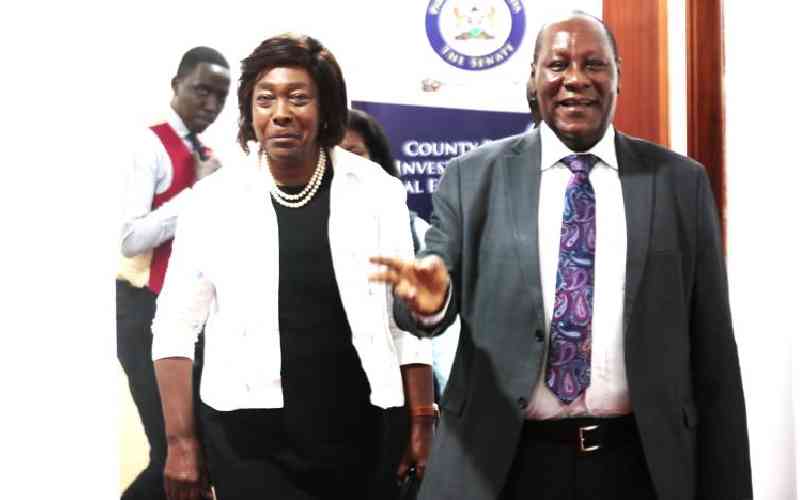
“Over my dead body”! Is an exclamation that many jobless Kenyans would use to respond if the idea of making coffins for a living is tossed to them. That, however, is not the case with one Timothy Sang from Tergat area in Kericho County.
Faced with joblessness after dropping out of school, the hardworking 32-year-old specialized in carpentry and set up his business from which he has been raking in profit. The skilful and ambitious carpenter has reportedly earned fame and even received numerous referred clients from across the county due to his fine touch in furniture making.
Unfortunately, expanding his business by venturing into coffin-making has turned his business into a curse, with his close family members now shunning him as they accuse him of bringing bad omen to the family.
“Matters weren’t made any better by the fact that his family is conservative. The first salvo was fired by his mother who warned him to desist from making coffins and concentrate on his other carpentry works at the workshop,” said Philip Bore, a villager familiar with the incident.
The ageing woman, who strongly believes that making and putting coffins on display with the hope of having booming business is tantamount to tempting fate or inviting death, protested his sons business and threatened to disown him.
What had begun as a small family matter quickly spiralled out of control, with panic-stricken neighbours joining calls to have the carpenter stop the coffin business.
“At some point, angry villagers stormed Timothy’s workshop and read him the riot act over what they termed as ‘courting death’.
They claimed that as much as he is a talented carpenter, they were not going to sit and watch him jinx the locality,” said Bore, adding that culturally locals believe making and putting coffins for sale on display is tantamount to inviting death.
Soiling family name
However, the unmoved entrepreneurial Sang downplayed their allegations, dismissing them as backward and superstitious. He warned them against intimidating him, lest they get themselves on the wrong side of the law.
According to his mother, the villagers had developed fear and subsequently prevailed upon her to convince her son to quit the weird business and spare the village agony.
Her attempt to convince his son otherwise unfortunately fell on deaf ears. Arguing that death is a must and it has nothing to do with him selling coffins, Sang told off his mother. Some of his concerned kin have threatened to disown and turn him into an outcast for soiling the family’s name.
This, according to a family insider will involve cutting off ties with Sang, even if it means leaving him by himself in the home. Although this is a practice that is seldom done in the area, it has attracted mixed reactions.
A faction of the family members threw their weight behind Timothy, while maintaining that coffin making is just a business like any other, and which should not be viewed from a negative cultural lens.
Stay informed. Subscribe to our newsletter
The unapologetic Sang has now been forced to temporarily stop making and displaying coffins outside his workshop, but insists he is only waiting for the fury to subdue to continue with the business.
“I am not afraid of ancestors. Only superstitious people would hold onto such backward beliefs,” a defiant Sang is quoted as having complained, even as he vowed to continue with the condemned business once things cool down.
 The Standard Group Plc is a
multi-media organization with investments in media platforms spanning newspaper
print operations, television, radio broadcasting, digital and online services. The
Standard Group is recognized as a leading multi-media house in Kenya with a key
influence in matters of national and international interest.
The Standard Group Plc is a
multi-media organization with investments in media platforms spanning newspaper
print operations, television, radio broadcasting, digital and online services. The
Standard Group is recognized as a leading multi-media house in Kenya with a key
influence in matters of national and international interest.
 The Standard Group Plc is a
multi-media organization with investments in media platforms spanning newspaper
print operations, television, radio broadcasting, digital and online services. The
Standard Group is recognized as a leading multi-media house in Kenya with a key
influence in matters of national and international interest.
The Standard Group Plc is a
multi-media organization with investments in media platforms spanning newspaper
print operations, television, radio broadcasting, digital and online services. The
Standard Group is recognized as a leading multi-media house in Kenya with a key
influence in matters of national and international interest.






